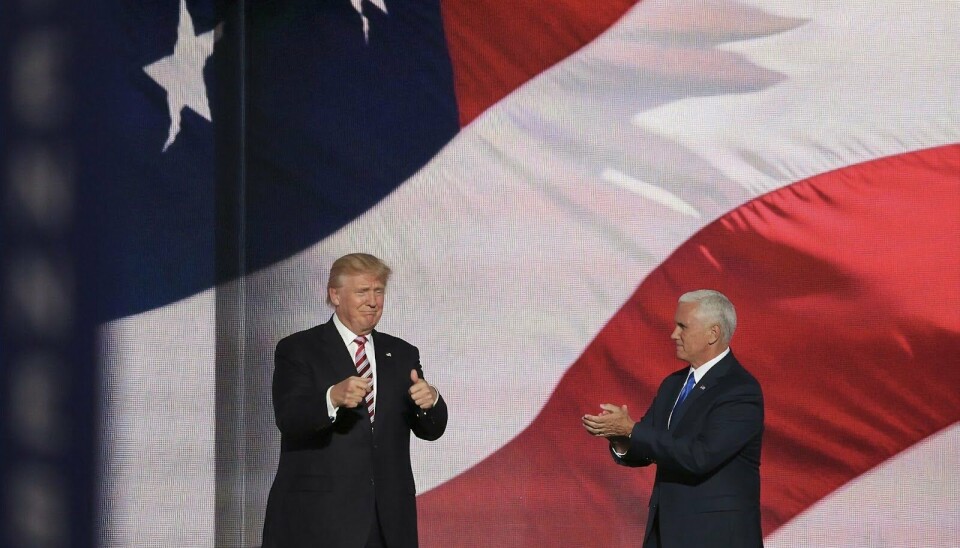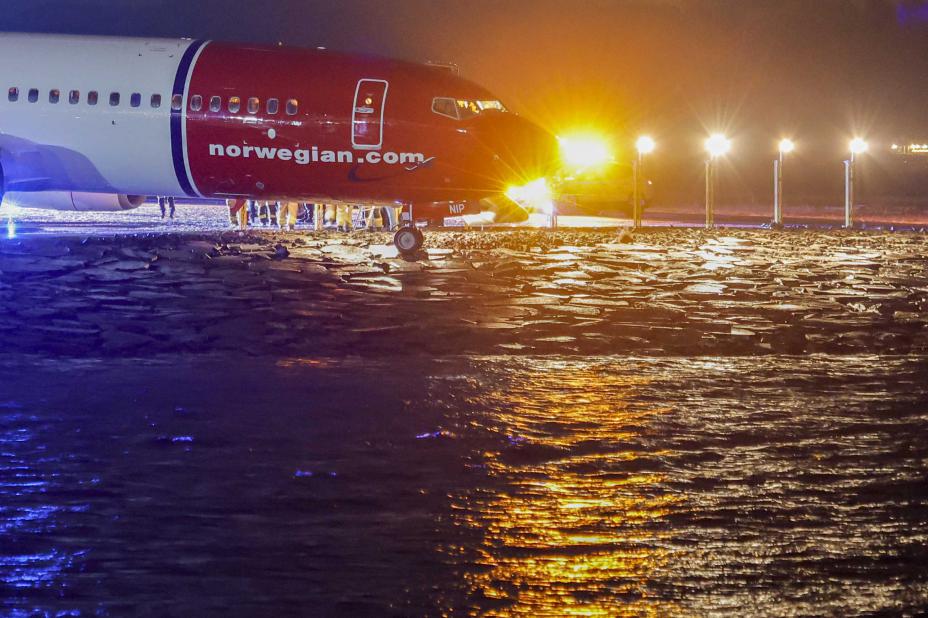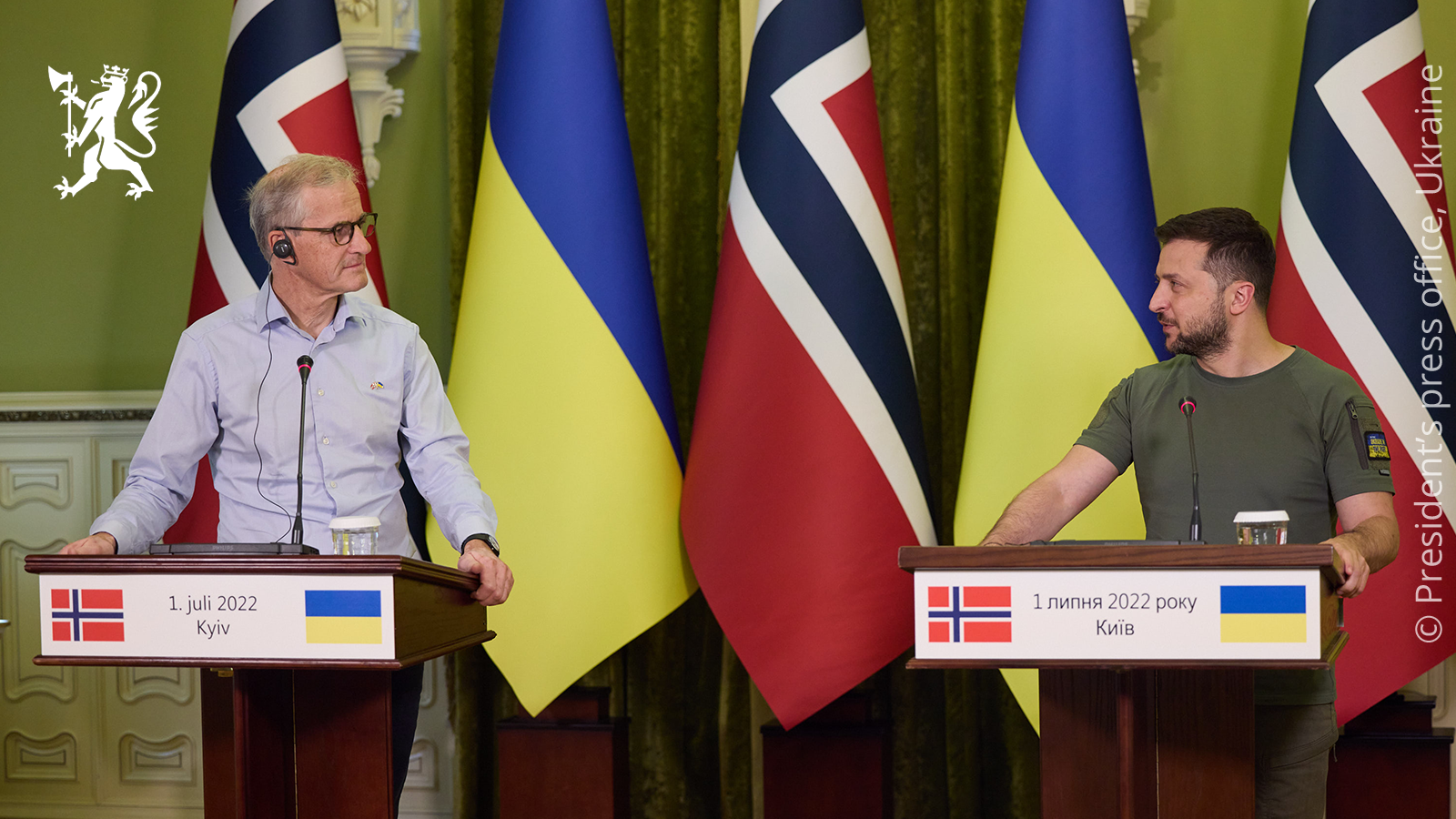Entertainment
US 2024 Elections: What’s at stake for Norway

Norwegian media: the elections are tight
When describing Donald Trump, Norwegian media usually portray him as deeply competitive and capable of crushing most of his co-runners. Character-wise, though, the media mention his loss of composure during the debate against Kamala Harris in early September.
The debate was broadcasted on ABC News on September 10th, 2024. Those 90 minutes of arguing showed Donald Trump as aggressive and lying, claiming of the Haitian minority in Springfield that “they’re eating the dogs, the people that came in, they’re eating the cats, they’re eating the pets of the people that live there”. Kamala Harris, his opponent, simply laughed at these comments.
The democrat candidate was declared the winner of this debate by some of the biggest English-speaking media, such as CNN and BBC, a declaration contested by the Republicans. CNN did offer to host a second debate two weeks before the elections, an offer accepted by Kamala Harris but declined by Donald Trump. He claimed it would already be “too late” for a debate at that time, ostensibly since he won the one before.
As for Kamala Harris, Norwegian media describe her as a surprise, as the unexpected candidate of the Democrats. She is seen as the candidate of the middle class, offering an “economy of possibilities.” Polls give her a slight advantage over her opponent.
In general, the Norwegian media paint the picture of a very tight fight between two dissimilar persons, that are, once again, leading to a polarisation in the American public opinion.
“Been there, done that”
Donald Trump’s presidency is an era that Norway has already been through. It wasn’t always all nice and cosy, though it doesn’t mean that another term would bring the same challenges to both countries’ relations with each other.
What remains true is how different Norway’s mindset is compared to that of Donald Trump. Climate change is a good example. Trump’s administration is sceptical about climate change, often questioning the scientific consensus and labelling it as a “hoax”, as reminded by CNN. He also withdrew from international climate agreements, including the Paris Agreement. This agreement was rejoined by Biden’s administration, but if elected, Donald Trump announced he would leave it again, as reported by The Guardian.
When the US first decided to withdraw from the Paris Agreement, Erna Solberg, Prime Minister at the time, reacted by saying “I am very disappointed that the Trump administration has decided to withdraw the US from the most important climate agreement the world has ever seen. Our efforts to combat climate change will continue undiminished”.
In an interview for VG, Jonas Gahr Støre, Norway’s current Prime Minister, said he was open to working with both candidates, but Harris did make a good impression on him. He also underlined the importance of having common democratic values within NATO.

Defence spending is another moot point in the relations between the Trump administration and Norway. In 2018, Donald Trump criticised Norway and other NATO countries for not spending enough on defence. “Norway (…) remains the only NATO ally sharing a border with Russia that lacks a credible plan to spend 2% of its Gross Domestic Product on defence,” the then American president wrote in a letter shared by VG.
Trump referred to NATO’s goal of having all its members spend 2% of their GDP on defence by 2024. When the letter was sent, Norway was at 1.6%, which made it dependent on the United States for protection. Norway does share a border with Russia, so Trump’s focus on this could have very well been a veiled threat insinuating that the US could decide to halt its support.
Recently, Jonas Gahr Støre announced a “historic increase” of $56 billion in defence spending over the next 12 years. Even though it hasn’t been clearly stated, the ultimate goal of Norway seems to be to escape its dependance on the US for protection.
A new face, but a similar government?
Kamala Harris, a Black woman president, that would be new for sure. But would a lot change policy-wise? She is Biden’s Vice President, after all, so perhaps no.
Still, if Harris were to become president, she would be shattering multiple glass ceilings simultaneously: as a Black woman and person of South Asian descent. Biden mentioned how meaningful her presidency would be for millions of young Black people, especially girls, saying, “Today, just maybe, they’re seeing themselves for the first time in a new way, as the stuff of presidents and vice presidents,” according to Associated Press.
What such an administration could work towards is more collaboration with Norway. Climate issues would certainly be on the agenda. At the Democratic Convention in August, Kamala Harris stated that one of the “fundamental freedoms” at stake in this election was “the freedom to breathe clean air, drink clean water, and live free from the pollution that fuels the climate crisis,” according to CBS News.

Harris sees climate change as one of the biggest challenges today, and she wants to make sure the hardest-hit communities get the support they need, through policies like the Justice40 Initiative for instance. The Justice40 Initiative is a commitment by the Biden administration to direct 40% of the overall benefits of federal investments in climate and clean energy to disadvantaged communities. This focus matches Norway’s environmental goals, which could help both countries work together.
The Democrats also believe the US should be a climate leader worldwide. As stated by CNN, they emphasise the importance of working with other countries to reduce pollution and funding projects to help developing nations adapt to climate change.
Whereas Trump was displeased over NATO defence spending, saying the US was paying more than any other member, Harris might then prioritise good relations with allies. She could, for example, enhance Arctic security. This is an important matter to Norway, because it would help counterbalance Russian presence in the region. By caring for Arctic security matters, Harris would follow in Biden’s steps who, according to The White House, “reactivated a critical steering committee and added a slate of dedicated Arctic experts to its team.”
Were Harris to become president, the partnership between Norway and the US could strengthen, whether in the social or environmental sector or in international relations.
Norway’s diplomacy of balance
No matter who leads the US, Norway intends to keep good relations with the country. After all, both have been cooperating in matters of defence for the last 70 years. Whether the winner of the elections ends up being a Democrat or a Republican, whether or not their values align fully with the ones of Norwegians, Norway will accept everything and work hand in hand with the new administration.
Norway’s diplomacy generally is that of attempting to establish a balanced relationship with as many political actors as possible. Being a NATO member and sharing a border with Russia means that the country needs to have good relations with both. As part of its careful balancing, Norway manages its alliance with global powers like the US, Russia, and China, all while staying true to its core values.
Such an approach isn’t new for Norway at all. Over the years, it has earned a reputation as a trusted mediator and peacemaker in international affairs, often engaging in peacebuilding initiatives across the globe.
For instance, Norway played a central role in the Oslo Accords between Israel and the Palestinian Liberation Organization (PLO) in 1993. These accords, which Norway helped broker through secret negotiations, established mutual recognition and laid the groundwork for Palestinian self-governance. Also, Norway served as a guarantor country in the peace talks between the Colombian government and the Revolutionary Armed Forces of Colombia (FARC), culminating in a peace agreement in 2016 after over 50 years of conflict.
The country is perceived now as diplomatic, trustworthy, and driven by humanistic values. Its non-global superpower status and the lack of colonial history can be seen to make it less biased in tackling international matters than most countries.
Norway’s careful diplomatic balancing is essential for maintaining stable relations with diverse international partners and allows it to play a constructive role on issues such as Arctic governance, climate change, and global peace efforts. This commitment to balance is a defining characteristic of Norway’s foreign policy and continues to shape its role as a respected and impartial actor on the world stage.





